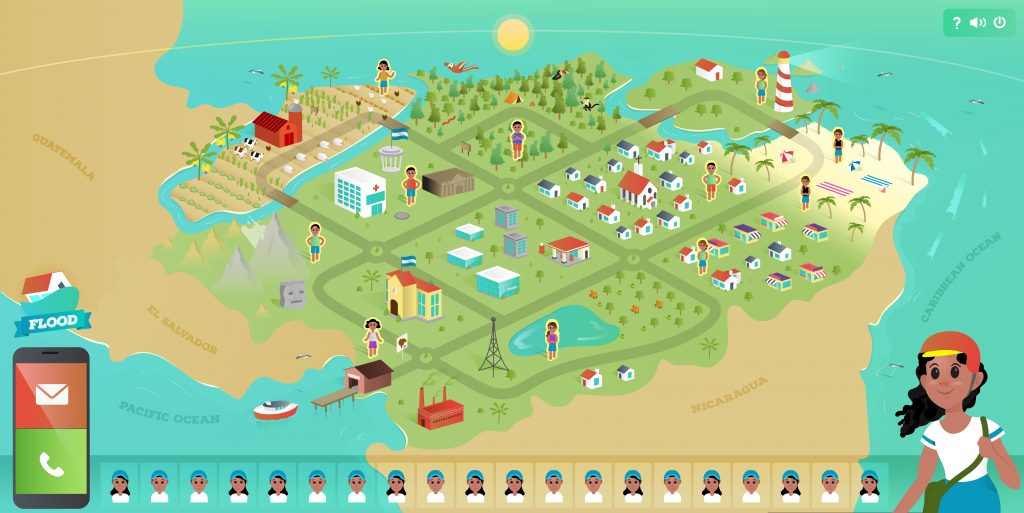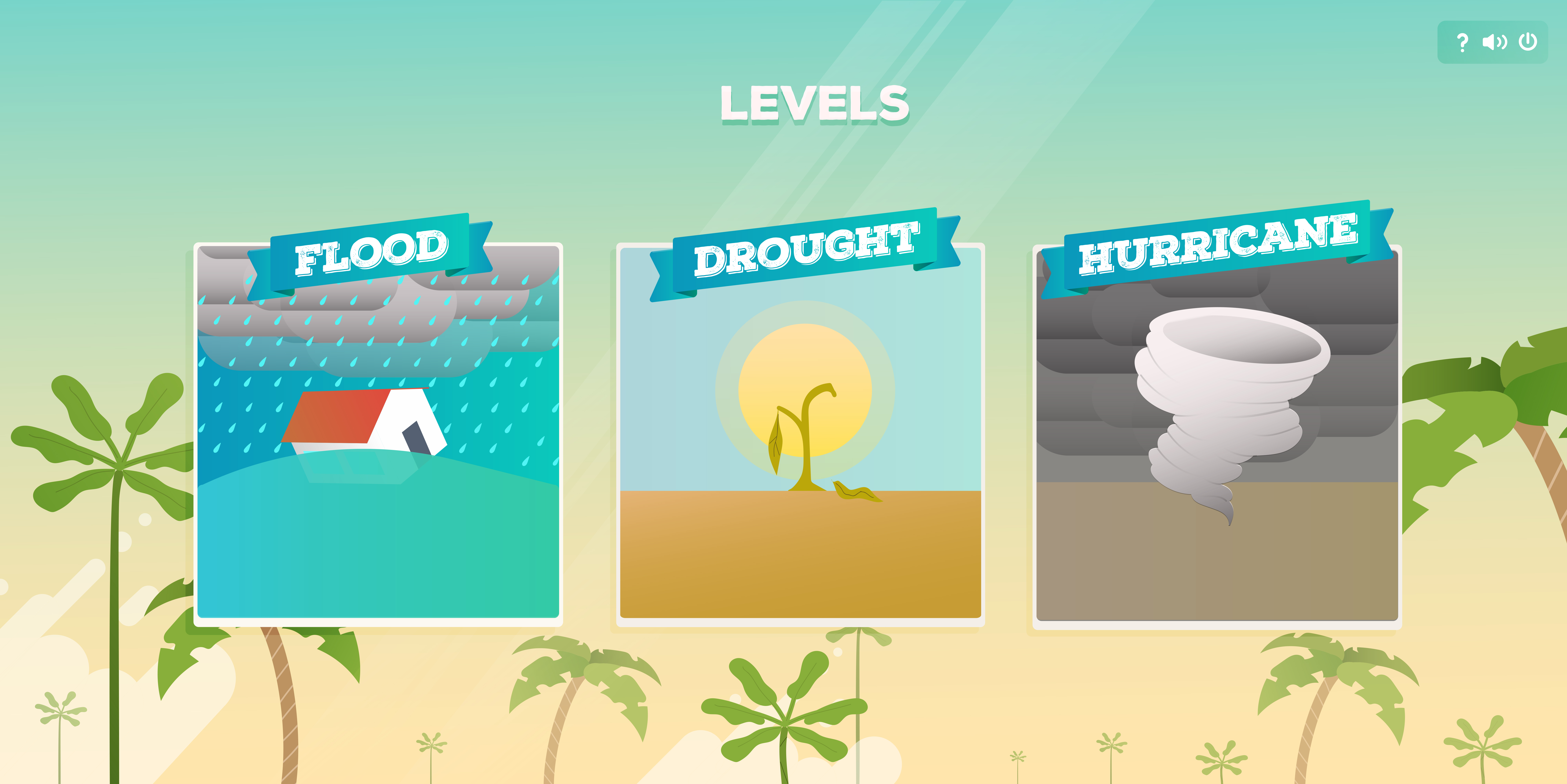Who We Are
- Trócaire – lead agency
- EightyTwenty.ie – Digital Media Company
- Gaelscoill Bharra, Cabrach – Test/Piloting school
What We Did
Since 2011, as sector leader in ‘Digital Development Education’, Trócaire has developed a number of microsites to support printed resources; introduced character-led animations exploring climate justice; developed our first eBook; designed infographics; and created a critical media literacy resource to accompany our documentaries.
In 2017, our education site had 72,799 page views, and 28,810 downloads. To build on our experience in this area, push these boundaries further, and trail-blaze a potential new form of engagement, we decided to create the first Development Education ‘serious game’ in Ireland.
In collaboration with a Dublin based digital media company, we created a Development Education ‘serious’ game called ‘Project Honduras’. This game is based on our experience in Honduras, working with communities who are under threat from the worst effects of climate change; flooding, drought, and intense storms.
For Trócaire, innovation is change that adds value. By adopting this new approach to creating digital resources, we are able to engage young people in games that have real-world applications beyond pure entertainment – to learn, build empathy, change attitudes, and encourage active citizenship.
Young people will play games regardless of whether Development Educators are in this space. Research has shown that 76% of children aged 12-15, and 62% of children aged 8-11, play games online.

Why We Did It
Project Honduras is a strategy game where the primary goal is to show how important it is for communities to work together to combat climate change. It’s done in a fun, light-hearted style, so even when the player is receiving information, it never feels preachy or like homework, the learning is instead inherent in the game-play. Students can play as Javier or Andrea, two characters based on real young climate activists from Honduras. Human Centred Design principles were applied to the development of the game, including extensive testing with Irish students at Primary and Post primary level.
This game is informed by research we have conducted with Paul Keating from Limerick Institute of Technology (LIT). Inspired by Freirean approaches to transformational education, physical games have been used by DE practitioners since the 1970s as a method for engagement to critically interrogate global justice issues. Paul’s research explores how games are used, what outcomes they achieve, and the extent to which digital games can be used to accomplish similar outcomes.
A prototype of ‘Project Honduras’ was presented at the 2019 Dóchas conference, receiving positive feedback on an innovative approach to promoting values of international development.
To further back up our existing research and experience, we have commissioned research on digital DE with DCU to understand how teachers are using digital tools in the classroom; analyse the culture gap between students’ and teachers’ capacity for digital learning; to ultimately assess opportunities to extend the reach of DE through digital learning channels. This research will concluded at the end of 2019, with research results due for release in early 2020.
How We Did It
- Developed a detailed project plan
- Demonstrated existing research on using digital games in education
- Identified clear project objectives
- Identified clear target stakeholders
- Put in place a project team
- Identified projected costs and budget
- Engaged with identified Digital Media Company
- Developed concept and timelines
- Identified testing school
- Created board game draft
- Testing phase one
- Created digital game
- Testing phase two
- Final Game created
- Launched Game

Did We Succeed?
We had five main deliverables in our project plan:
- Create the ‘serious game’
- Create a toolkit for teachers
- Develop an associated SFAJW Project plan (later to become Game Changers)
- Put in place a robust PR plan
- Put in place a robust monitoring and evaluation plan.
Items 1,2 and 3 are completed, 4 and 5 are ongoing. We perhaps are not where we would like to be in terms of promoting ‘Project Honduras’, or indeed measuring the impact of the game, but these are ongoing pieces of work.
Project Honduras was entered into a number of awards, including the 6th International Educational Games Competition, held in Nice, France. The game won the ‘Game in Development’ category, with feedback from the judges focusing on the strength of the story and the characters that we used, who were based on real people supported by Trócaire and our partners in Honduras.
For more, visit trocaire.org/education/project-honduras
